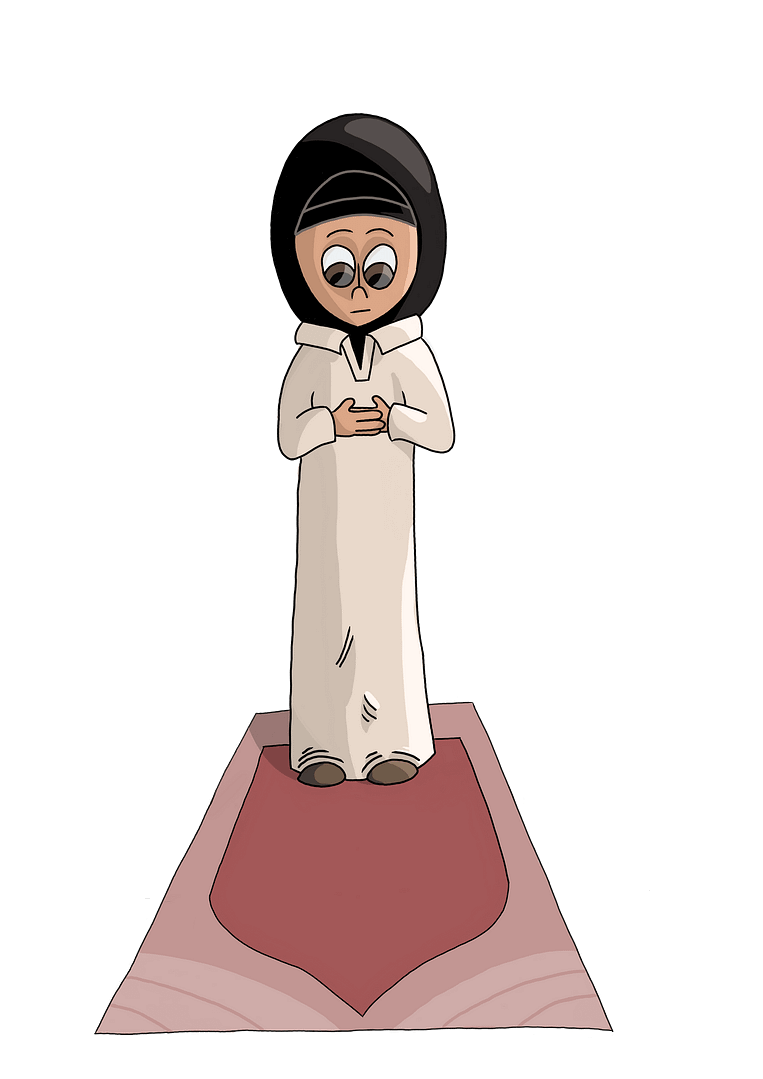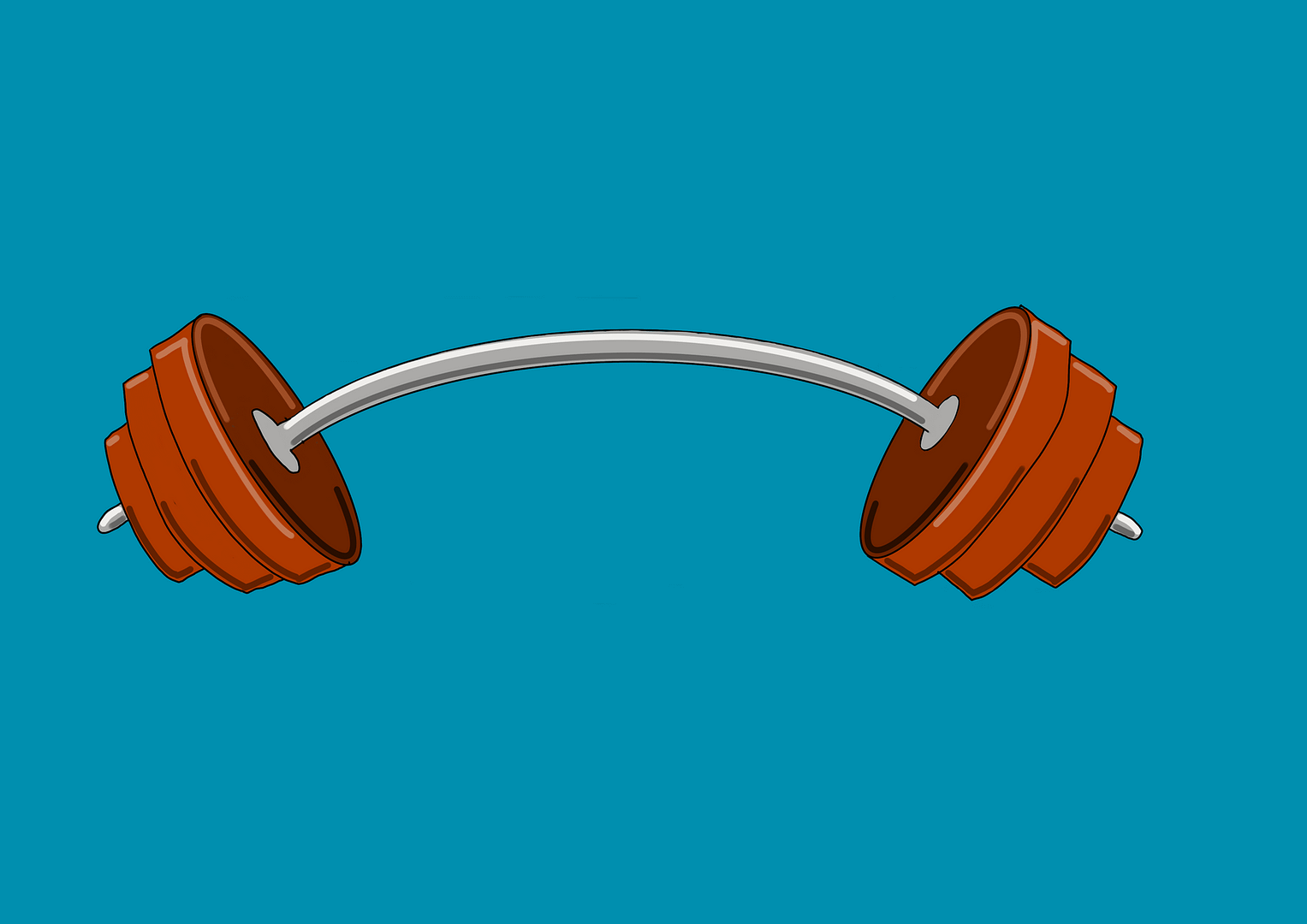Worship no doubt leads to happiness in the hereafter. But what about this world? How does worship bring happiness to our earthly lives?
Third Word (Part 3)
NOTE: The quoted passages are from Ustadh Bediuzzaman’s book and the commentaries below them are my own.
Though worship has an apparent weight, it has such a comfort and lightness in its meaning that it cannot be expressed. Because a worshiper says in his prayer (salat): اَشْهَدُ اَنْ لاٰ اِلٰهَ اِلاَّ اللّٰه, meaning that since [he] believes “There is no creator and provider besides Him. Harm and benefit is in His hands. He is both wise, does nothing in vain; and compassionate, His kindness and mercy are abundant.”, in everything he finds a door for a treasure of divine mercy [and] knocks on it with prayer (dua). Also, He sees everything as subservient to the command of his Lord. He seeks refuge in his Lord, depends [on Him] with reliance, [and] takes shelter against every calamity. His faith gives him a complete secureness.
Yes, as with every true virtue, the source of courage too is faith [and] worship. As with every vice, the source of cowardice too is misguidance. Yes, for a worshiper of a complete illuminated heart; if the globe of the earth becomes a bomb and explodes, it is possible that it will not scare him. Perhaps, he will watch a magnificent power of Divine Sufficiency with a pleasurable wonder. However, as for a famous sinful philosopher without a heart – said to be of an illuminated mind – [if he] sees a shooting star in the sky, he will tremble on the ground [and] say “What if this stray shooting star hits our earth?”, falling into doubt. (One time, America trembled from such a star. Many of them left their homes at night).
Yes, while the human is in need of endless things, his wealth is as nothing; also, while he is subjected to endless calamities, his power is something tantamount to nothing. The sphere of his wealth and power is virtually the size of wherever his hand can reach. Yet, as for his wishes, desires and pains and calamities; its sphere is the size of wherever his eye[s and] imagination can reach and how far they can go. For the human soul who is impotent and weak, poor and needy to this degree; anybody who is not entirely blind will see [and] understand what a great profit, a happiness, a blessing are worship, reliance, [and] surrender.
It is known that a harmless path will be favored over a harmful path, even if it is with only one possibility out of ten possibilities. However, our matter of the path of worship – while being without harm – has a treasure of eternal happiness with a possibility of nine out of ten. As for the path of sinfulness and dissipation – even by the confession of the sinful individual – while it is without benefit, there is the destruction of eternal misery with a possibility of nine out of ten, confirmed by the witnessing of boundless people of specialization and observation and affirmed through the reporting of the people of joy and discovery, in the level of unanimity and mass transmission.
Conclusion: just as for the afterlife, happiness of [this] world too is in worship and in being a soldier of Allah. Since that is so, we must always say اَلْحَمْدُ لِلّٰهِ عَلَى الطَّاعَةِ وَ التَّوْفيٖقِ and thank [Allah ﷻ] for being a Muslim.
Humans are inherently weak creatures. Their power is far from satisfying their needs and desires, leaving them at the mercy of others, be it other humans or even unconscious beings such as rain. However, many of those beings either do not know them or do not show them the degree of mercy they seek for and the individual is left on their own.
It is not difficult to imagine the state of mental torment such an individual experiences. The author mentions that worship is a cure to this state. How so?
Worship strengthens our faith. The deeper our faith, the better we feel the oneness of God. Essentially, we realize that all power is in His hands alone; nobody can benefit or harm us without His permission. Also, whatever beauty we see in others (mercy, compassion, knowledge, etc) are essentially manifestations of the names of God; that God alone is the true possessor of the beauty we seek for. In other words, we realize that God is the only One worthy of being sought for and pleased and the only One in complete control of everything. Once we realize these, we surrender ourselves to God. Finally, surrendering to God necessates relying upon Him and trusting Him in every matter. Whatever happens to us happens through His permission. Although we may not always recieve what we want, we know that God always gives us what is best for us. Just as a child feels secure in the presence of his parents, in this way we will feel true security and a peace of mind in our lives. Furthermore – unlike other beings in this universe who express only a certain degree of mercy – our Creator, Who created us from nothing and brought us into this life with countless many favors, has infinite mercy towards us. Knowing that we are in safe hands, we cease worrying about the future. This state is that of true happiness.[1]
We observe an illustration of this in the life of the ruler Jalaluddin Khuwarzam Shah. While on his way to a war against Genghis Khan, the people around him said he would be victorious with the help of God. Khuwarzam Shah replied that success or failure is the decision of God; his only duty is to fight against the enemy in obedience to God’s command, not to interfere in God’s business.[2]
Here, we see that Jalaluddin Khwarzam Shah had understood that the outcome is always in the hands of God; he knew that whatever came from God, be it success or failure, would be the best for him. He focused only on his own duty without having to worry about the outcome. In other words, he did not fight for the sake of being victorious; he fought because he was commanded to do so by his Creator. Since victory was not his goal; there was no reason to feel stressed or anxious over the battle. Through his complete reliance on God, he had a true peace of mind.
In the following passage, the author describes the beauty of faith and reliance upon God,
Faith is both light (noor) and power. Yes, the man who attains true faith may defy the universe and, depending on the strength of his faith, can escape the pressure of events. He will say “تَوَكَّلْتُ عَلَى اللّٰهِ” [and] travel in the boat of life in perfect secureness within mountain-like waves of events. He will entrust all of his weights to the Hand of power of The Ultimate Powerful One, pass through [this] world in comfort, [and] rest in the life of graves (barzakh); then, in order to enter eternal happiness, he can fly to heaven. Otherwise, if he does not rely upon God, the weights of this world will not [only prevent him from] flying [but] maybe drag him to the lowest of the low. Hence, faith necessitates the oneness of God, [and] the oneness of God that of surrender, [and] surrender that of reliance upon God, [and] reliance upon God that of the happiness of both worlds.[3]
Note that simply knowing the oneness of God and the necessity of surrendering and relying upon Him is not sufficient. Every Muslim already knows and accepts these as a fact. However, being in a state where you actually begin feel these requires more than just accepting them as facts. The way to achieve that state is through worship. The more you worship the stronger your faith becomes. You not only accept these as facts but truly absorb them and begin to experience them. Over time, the value of this world begins to diminish in your viewpoint. Your only goal becomes to please God and act according to His commands. You cease worrying about the future and stressing over your life in pure surrender and reliance upon God.
[1] Twenty-Third Word, First Chapter, Third Point
[2] Seventeenth Flash, Thirteenth Note, The First Matter
[3] Twenty-Third Word, First Chapter, Third Point



